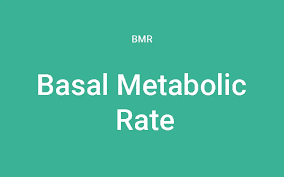Are you looking for a reliable way to understand your body’s metabolism? Look no further than the accurate BMR calculator or basal metabolism calculator.These are scientifically-proven methods for calculating your body’s resting energy expenditure and basal metabolic rate. By inputting your age, weight, height, and gender, you can receive personalized results that reveal insights into your body’s energy expenditure. With this information, you can make informed decisions about your daily calorie intake, exercise routine, and overall lifestyle.
BMR Calculator
BMR:
| Activity Level | Calorie |
|---|
[ez-toc]
What is BMR?
The world of fitness and weight loss is filled with countless acronyms and jargon, and one you might have come across is BMR. But what is BMR? In this article, we'll dive deep into the concept of basal metabolic rate, explaining its significance and how you can use this knowledge to achieve your fitness and weight loss goals.
BMR ( Basal Metabolic Rate ) ?
BMR stands for basal metabolic rate, which refers to the number of calories your body needs to function at complete rest. It accounts for the energy required for essential physiological processes such as breathing, circulation, cell production, and nutrient processing. In other words, BMR is the minimum amount of energy your body requires to maintain basic life functions.
Factors Which Affect BMR
Your basal metabolic rate (BMR) plays a significant role in weight management and overall health. BMR represents the number of calories your body requires to maintain its basic life functions at rest. Understanding the factors that influence your BMR can help you create an effective weight loss or fitness plan tailored to your body's unique needs. In this article, we'll discuss the key factors that affect BMR and offer tips on optimizing your metabolism.
Age
Age is one of the most influential factors affecting BMR. As we grow older, our metabolism naturally slows down. This decrease in BMR is partly due to the loss of muscle mass and the increase in body fat that typically occurs with age. To counteract this decline, consider incorporating strength training and other muscle-building exercises into your fitness routine to maintain or increase muscle mass.
Gender
Gender also plays a role in determining BMR. On average, men have a higher BMR than women due to their greater muscle mass and lower body fat percentage. While this difference may not be significant enough to require a completely different fitness approach, it is essential to consider gender when calculating BMR and creating a personalized nutrition and exercise plan.
Body Composition
Muscle mass is more metabolically active than body fat, meaning that it burns more calories even at rest. Consequently, individuals with a higher muscle-to-fat ratio have a higher BMR. Strength training exercises and consuming a protein-rich diet can help you increase muscle mass and, in turn, boost your BMR.
Genetics
Genetics play a crucial role in determining your BMR. Some individuals inherit a naturally faster or slower metabolism from their parents. While you can't change your genetic makeup, you can optimize your metabolism by adopting a healthy lifestyle that includes regular physical activity and a balanced diet.
Hormones
Hormones have a significant impact on BMR. Thyroid hormones, in particular, regulate metabolism and can directly influence your BMR. Hypothyroidism (an underactive thyroid) can cause a slower metabolism, while hyperthyroidism (an overactive thyroid) can result in a faster metabolism. If you suspect a thyroid issue, consult a healthcare professional for proper diagnosis and treatment.
Temperature and Climate
Your body's BMR can be influenced by the temperature and climate of your surroundings. In cold environments, your body must work harder to maintain its core temperature, leading to an increase in BMR. In hot conditions, the body works to cool itself, which can also raise BMR. While you can't control the climate, being aware of its impact on your BMR can help you adjust your nutrition and exercise plans accordingly.
Nutritional Status
Your body's nutritional status can impact your BMR. A prolonged calorie-restricted diet can cause your body to slow down its metabolism to conserve energy. This adaptive response can make weight loss more challenging. To prevent a significant decline in BMR, aim for a moderate calorie deficit and avoid extreme diets that can negatively affect your metabolism.
How to Calculate BMR - BMR Formula
Calculating your basal metabolic rate (BMR) is essential for creating a personalized weight loss or fitness plan. BMR represents the number of calories your body needs to maintain basic life functions at rest. By accurately determining your BMR, you can better understand your daily calorie requirements and tailor your diet and exercise regimen accordingly. In this article, we will explore the most accurate BMR formulas and explain how to use them.
- Mifflin-St Jeor Equation
The Mifflin-St Jeor equation is considered one of the most accurate BMR formulas available today. Developed in 1990, this formula has been widely endorsed by various nutrition and fitness organizations due to its accuracy and simplicity. The Mifflin-St Jeor equation takes into account your age, gender, height, and weight:
For men: BMR = (10 × weight in kg) + (6.25 × height in cm) - (5 × age in years) + 5
For women: BMR = (10 × weight in kg) + (6.25 × height in cm) - (5 × age in years) - 161
- Harris-Benedict Equation
The Harris-Benedict equation is another widely used formula for estimating BMR. Developed in 1919 and later revised in 1984, this formula also considers age, gender, height, and weight. While slightly less accurate than the Mifflin-St Jeor equation, it remains a popular option for calculating BMR:
For men (revised 1984): BMR = 88.362 + (13.397 × weight in kg) + (4.799 × height in cm) - (5.677 × age in years)
For women (revised 1984): BMR = 447.593 + (9.247 × weight in kg) + (3.098 × height in cm) - (4.330 × age in years)
- Katch-McArdle Formula
The Katch-McArdle formula is unique in that it considers an individual's lean body mass (LBM) instead of their total body weight. This makes it particularly useful for athletes or individuals with significant muscle mass, as it provides a more accurate estimation of their BMR. To use the Katch-McArdle formula, you first need to calculate your LBM:
BMR = 370 + (21.6 × LBM in kg)
- Cunningham Equation
The Cunningham equation, like the Katch-McArdle formula, also takes into account lean body mass. This formula is best suited for individuals with a high level of physical activity or a significant amount of muscle mass:
BMR = 500 + (22 × LBM in kg)
BMR Calculation for Man – An Example
Basal Metabolic Rate (BMR) is the amount of energy or calories your body needs to maintain basic functions while at rest. Calculating BMR is an essential step in determining daily calorie needs. Let's calculate the BMR for a man using the Harris-Benedict equation:
Step 1: Calculate BMR using the Harris-Benedict Equation for Men:
BMR = 88.362 + (13.397 × weight in kg) + (4.799 × height in cm) - (5.677 × age in years)
Example: Let's calculate the BMR for a 30-year-old man who weighs 75 kg and is 175 cm tall.
BMR = 88.362 + (13.397 × 75) + (4.799 × 175) - (5.677 × 30) BMR = 88.362 + 1004.775 + 839.725 - 170.31 BMR = 1762.552 calories per day
So, the BMR for this 30-year-old man is approximately 1762.55 calories per day. This is the number of calories his body needs to maintain basic functions at rest.
BMR Calculation for Woman – An Example
Now, let's calculate the BMR for a woman using the same Harris-Benedict equation, which has a slightly different formula for women:
Step 1: Calculate BMR using the Harris-Benedict Equation for Women:
BMR = 447.593 + (9.247 × weight in kg) + (3.098 × height in cm) - (4.330 × age in years)
Example: Let's calculate the BMR for a 28-year-old woman who weighs 65 kg and is 160 cm tall.
BMR = 447.593 + (9.247 × 65) + (3.098 × 160) - (4.330 × 28) BMR = 447.593 + 601.055 + 495.68 - 121.24 BMR = 1423.08 calories per day
So, the BMR for this 28-year-old woman is approximately 1423.08 calories per day. This represents the number of calories her body needs to maintain basic functions at rest.
Boosting Your BMR - How to Improve BMR
While some factors affecting BMR are beyond your control, there are ways to increase your basal metabolic rate. These include:
A. Building muscle mass: Engage in strength training exercises to increase your muscle mass, which, in turn, boosts your BMR.
B. Eating protein-rich foods: Protein requires more energy to digest than fats or carbohydrates, leading to a higher calorie burn.
C. Staying hydrated: Water is essential for various metabolic processes, and dehydration can slow down your metabolism. D. Getting enough sleep: Poor sleep can negatively affect your metabolism and hormone levels, so aim for 7-9 hours of sleep per night.
Understanding your BMR is a critical first step in achieving your fitness and weight loss goals. By knowing how many calories your body needs to maintain basic life functions, you can develop a personalized diet and exercise plan to create a calorie deficit, leading to healthy and sustainable weight loss. Incorporate strategies to boost your BMR for even better results on your journey towards improved health and wellness.
How to Use BMR to Lose Weight?
Understanding your basal metabolic rate (BMR) is a powerful tool for weight loss, as it helps you determine how many calories your body needs to maintain its basic life functions at rest. By using this information, you can create a personalized weight loss plan tailored to your unique metabolic needs. In this article, we'll explore how to use BMR to lose weight and provide practical tips for achieving lasting results.
Calculate Your BMR
First, calculate your BMR using one of the accurate BMR formulas mentioned in our previous article, such as the Mifflin-St Jeor equation, Harris-Benedict equation, or Katch-McArdle formula. These formulas take into account factors like age, gender, height, weight, and lean body mass to estimate your daily calorie needs at rest.
Determine Your Total Daily Energy Expenditure (TDEE)
Your BMR only accounts for the calories your body burns at rest. To find out how many calories you need per day to maintain your current weight, you need to consider the additional calories you burn through physical activity. This is referred to as your Total Daily Energy Expenditure (TDEE). Use an online TDEE calculator or the following formula to estimate your TDEE:
TDEE = BMR × Activity Factor
Activity factors are as follows:
- Sedentary (little or no exercise): 1.2
- Lightly active (light exercise/sports 1-3 days a week): 1.375
- Moderately active (moderate exercise/sports 3-5 days a week): 1.55
- Very active (hard exercise/sports 6-7 days a week): 1.725
- Extra active (very hard exercise, physical job, or training twice a day): 1.9
Create a Calorie Deficit
To lose weight, you need to consume fewer calories than your TDEE, creating a calorie deficit. A safe and sustainable calorie deficit is typically between 500 and 1,000 calories per day, which can result in a weight loss of 1-2 pounds per week. Keep in mind that consuming too few calories can lead to muscle loss, a slower metabolism, and nutritional deficiencies, so aim for a moderate calorie deficit.
Design a Balanced Diet
Using your BMR and TDEE calculations, design a balanced diet that provides the necessary nutrients while maintaining a calorie deficit. Focus on consuming whole foods, such as fruits, vegetables, lean proteins, whole grains, and healthy fats. Avoid empty calories found in processed foods, sugary beverages, and excessive amounts of unhealthy fats.
Incorporate Regular Exercise
Regular exercise not only helps you burn additional calories, but it can also increase your metabolism and improve your overall health. Combine both cardiovascular exercises, such as walking, jogging, or swimming, with strength training exercises to promote muscle growth and maintain a higher BMR.
Monitor Your Progress and Adjust Accordingly
Track your weight loss progress and adjust your calorie intake and exercise routine as needed. If you're not losing weight at the desired rate, consider increasing your physical activity or reducing your calorie intake slightly. Remember that weight loss is a gradual process, and consistency is key to achieving lasting results.
Basal Metabolism Hormone ?
When it comes to understanding our body's metabolism, basal metabolism hormones play a crucial role. These hormones govern the energy expenditure that occurs while we are at rest and are responsible for keeping our body functioning. In this article, we will delve into the world of basal metabolism hormones, their impact on our overall health, and how to harness their power for improved metabolic efficiency.
What are Basal Metabolism Hormones?
Basal metabolism refers to the energy expended by our bodies to maintain basic physiological functions, such as breathing, circulation, and cell production. This energy expenditure accounts for 60-75% of the total daily energy expenditure for most people. Basal metabolism hormones are the chemical messengers that regulate these essential processes.
Some of the primary hormones involved in basal metabolism include:
- Thyroid hormones (T3 and T4)
- Insulin
- Glucagon
- Leptin
- Ghrelin
The Role of Thyroid Hormones in Basal Metabolism
Thyroid hormones, particularly T3 and T4, are critical in regulating our metabolic rate. Produced by the thyroid gland, these hormones control the speed at which our cells convert nutrients into energy. An underactive thyroid (hypothyroidism) can lead to a slower metabolism, while an overactive thyroid (hyperthyroidism) can result in a faster metabolism.
Insulin and Glucagon: Balancing Blood Sugar Levels
Insulin and glucagon work together to maintain blood sugar levels and play a vital role in energy metabolism. Insulin is responsible for allowing glucose to enter the cells, where it can be used for energy or stored for later use. Glucagon, on the other hand, signals the liver to release stored glucose when blood sugar levels are low.
Leptin and Ghrelin: The Hunger Hormones
Leptin and ghrelin are hormones that regulate appetite and energy balance. Leptin is produced by fat cells and acts as an appetite suppressant, signaling the brain when we've had enough to eat. Ghrelin, often referred to as the "hunger hormone," stimulates appetite and promotes fat storage.
Optimizing Basal Metabolism Hormones for Better Health
Understanding the role of basal metabolism hormones is essential for managing our metabolic health. Here are some tips for optimizing these hormones:
- Maintain a balanced diet: Consuming adequate amounts of proteins, healthy fats, and complex carbohydrates can help regulate hormone levels and support a healthy metabolism.
- Exercise regularly: Physical activity can boost the production of metabolism-regulating hormones and help maintain a healthy body weight.
- Manage stress: Chronic stress can negatively impact hormone balance and metabolism. Incorporating stress-reducing activities such as meditation, yoga, or deep breathing exercises can help.
- Get enough sleep: Poor sleep can disrupt hormone production and negatively affect metabolism. Aim for 7-9 hours of sleep per night to support optimal hormone balance.
- Consult a healthcare professional: If you suspect a hormone imbalance, consult with a healthcare professional for proper evaluation and treatment.
Basal metabolism hormones play a crucial role in regulating our body's energy expenditure and overall metabolic health. By understanding the functions of these hormones and taking steps to optimize their levels, we can unlock our metabolic potential and support better health and weight management. Remember to consult a healthcare professional if you suspect a hormone imbalance or need guidance on improving your metabolic health.

Accurate BMR Calculator / Basal Metabolism Calculator
Understanding your body's metabolism is crucial for maintaining optimal health and managing weight. Two popular tools for calculating your metabolic rate are the accurate BMR calculator or basal metabolism calculator. By incorporating these exact keywords into your search, you can access reliable and user-friendly tools that reveal insights into your body's energy expenditure. In this article, we will explain how these calculators work and how they can help you optimize your metabolism.
How to Use an Accurate BMR Calculator or Basal Metabolism Calculator
Using an accurate BMR calculator or basal metabolism calculator is simple and straightforward. Follow these steps to get your personalized results:
- Input your age, weight, height, and gender into the calculator.
- Select the appropriate activity level (sedentary, light, moderate, or vigorous).
- The calculator will provide an estimate of your BMR or basal metabolism, as well as the total number of calories you need to maintain, lose, or gain weight.
Applying the Results of Your Accurate BMR Calculator / Basal Metabolism Calculator
With the information provided by your accurate BMR calculator or basal metabolism calculator, you can create a customized plan to achieve your health and fitness goals. Consider these strategies for optimizing your metabolism:
- Adjust your daily calorie intake: Knowing your BMR or basal metabolism allows you to determine how many calories you should consume each day to maintain, lose, or gain weight.
- Balance your macronutrients: Ensure you consume the appropriate balance of proteins, fats, and carbohydrates for optimal metabolic function.
- Incorporate regular physical activity: Exercise is crucial for maintaining a healthy metabolism and supporting your overall well-being.
Consult a Professional for Personalized Guidance
While an accurate BMR calculator and basal metabolism calculator provide valuable insights, consulting a healthcare professional or registered dietitian can offer personalized guidance tailored to your unique needs and goals.
FAQ on BMR (Basal Metabolic Rate)
What is BMR (Basal Metabolic Rate)?
BMR, or Basal Metabolic Rate, is the amount of energy (in calories) that your body needs to maintain basic physiological functions while at rest. These functions include breathing, circulation, cell production, and more.
Why is BMR important?
BMR is essential because it serves as the foundation for estimating your daily calorie needs. It helps determine the minimum number of calories your body requires to function at rest.
How is BMR calculated?
BMR can be calculated using various formulas, with the Harris-Benedict equation being one of the most commonly used. The formula takes into account factors such as weight, height, age, and gender.
What is the Harris-Benedict equation for calculating BMR?
The Harris-Benedict equation has separate formulas for men and women:
- For Men: BMR = 88.362 + (13.397 × weight in kg) + (4.799 × height in cm) - (5.677 × age in years)
- For Women: BMR = 447.593 + (9.247 × weight in kg) + (3.098 × height in cm) - (4.330 × age in years)
How do I use an accurate BMR calculator?
To use an accurate BMR calculator, input your weight, height, age, and gender. The calculator will apply the appropriate formula to estimate your BMR. Ensure that you choose a reputable and reliable calculator.
Can BMR vary among individuals of the same age and gender?
Yes, BMR can vary among individuals even if they share the same age and gender. Factors such as muscle mass, body composition, and genetics can influence BMR differences.
Is BMR the same as TDEE (Total Daily Energy Expenditure)?
No, BMR is the number of calories your body needs at rest, while TDEE includes the calories needed for daily activities, exercise, and digestion. TDEE is usually higher than BMR.
How can I use BMR to manage my weight?
To manage your weight, you can use your BMR as a starting point. By calculating your TDEE and adjusting your calorie intake accordingly, you can create a calorie deficit (for weight loss) or surplus (for weight gain).
Are there other methods to measure BMR accurately?
While formulas like the Harris-Benedict equation are widely used, more advanced methods like indirect calorimetry and DEXA scans can provide highly accurate measurements of BMR.
Can BMR change over time?
Yes, BMR can change due to factors such as age, changes in muscle mass, hormonal fluctuations, and weight loss or gain. Regularly recalculating your BMR can help you adjust your nutritional needs accordingly.
Are online BMR calculator reliable?
Online BMR calculator can be reliable if they use well-established formulas and are developed by reputable sources. However, it's important to use calculators from trusted websites or healthcare providers to ensure accuracy.
Conclusion
Unlock the power of your metabolism with the help of an accurate BMR calculator or basal metabolism calculator. These tools provide personalized insights into your body's energy expenditure, enabling you to make informed decisions about your diet and exercise routine. Remember to consult a healthcare professional for personalized guidance and support on your journey to optimal metabolic health.





